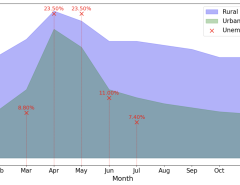Authors: Tinghao Zhang, Kwok-Yan Lam, Jun Zhao
Published on: February 04, 2024
Impact Score: 8.22
Arxiv code: Arxiv:2402.02506
Summary
- What is new: Improves Hierarchical Federated Learning (HFL) by introducing a deep reinforcement learning-based approach for device scheduling and an improved K-Center algorithm for IoT device assignment to edge servers.
- Why this is important: Network congestion in Federated Learning (FL) for IoT due to simultaneous participation of a large number of devices in the training process.
- What the research proposes: A new device scheduling methodology combined with an improved K-Center algorithm and a deep reinforcement learning approach for effective IoT device assignment to edge servers in HFL scenarios.
- Results: Scheduling 50% of IoT devices achieves model convergence with lower time delay and energy consumption. Scheduling 30% of devices significantly reduces energy and communication overhead with little to no loss in model accuracy.
Technical Details
Technological frameworks used: Federated Learning, Hierarchical Federated Learning
Models used: Deep Reinforcement Learning-based model, K-Center algorithm
Data used: IoT device data
Potential Impact
IoT providers, telecom companies, and firms leveraging IoT within operations could greatly benefit; also, energy and network service providers may see changes in demand patterns.
Want to implement this idea in a business?
We have generated a startup concept here: EffiFluent IoT Solutions.



Leave a Reply